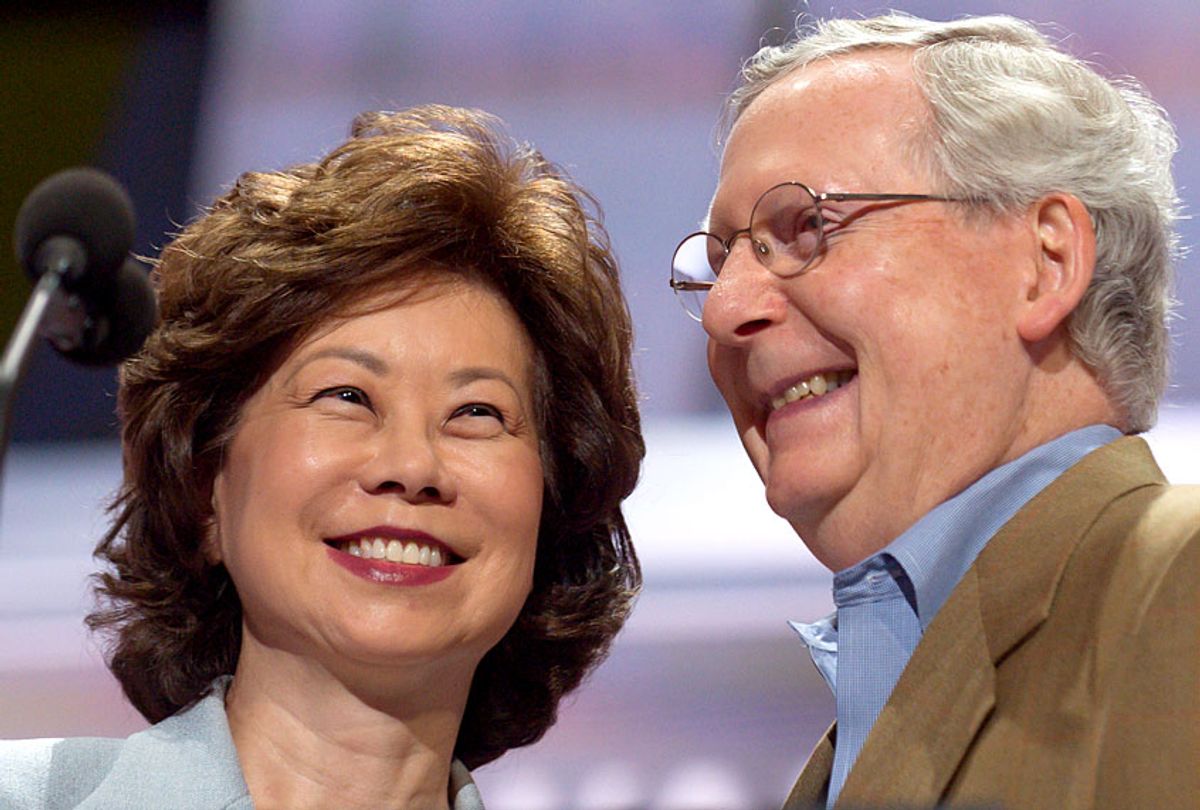Senate Majority Leader Mitch McConnell laughed Tuesday when asked whether he expects Congress to pass coronavirus relief legislation by the end of next week, when enhanced unemployment benefits are set to expire for around 30 million Americans who were thrown out of work by the pandemic-induced economic crisis.
"No," McConnell said after letting out what Politico reporter Jake Sherman, who posed the question, described as a "big laugh."
The $600-per-week increase in unemployment benefits provided under the CARES Act have served as both a lifeline for tens of millions of laid-off Americans and a significant cushion for the U.S. economy.
For weeks, economists and lawmakers have warnedthat letting the benefits lapse, even for a short period of time, could have devastating effects on those close to the brink of financial ruin. According to Census Bureau data, more than 13 million Americans who live in rental housing were behind on rent payments as of July 7.
"I have a bill to renew supercharged unemployment benefits until this crisis is over so families can continue to pay rent and buy groceries," Sen. Ron Wyden (D-Ore.) tweetedTuesday. "Senate Republicans have had every opportunity to pass it and have refused to do so."
While the enhanced unemployment benefits officially expire on July 31—a Friday—in effect the $600 weekly payments are set to end on either Saturday, July 25 or Sunday, July 26, the days states will send out the last boosted checks.
"Thirty million workers won't be able to pay rent on August 1st and McConnell is laughing," said Wyden spokesperson Ashley Schapitl.
Bobby Kogan, a mathematician for the Senate Budget Committee, tweeted that "there is no excuse" for allowing the enhanced benefits expire.
"We had months to get this done, and the House passed its bill back in May," wrote Kogan. "Tens of millions of people will be harmed because of the cavalier inaction of Senate Republicans."
House Speaker Nancy Pelosi (D-Calif.) laughed Tuesday when a CNN reporter askedwhether Congress would be able to reach a deal on coronavirus relief legislation by the end of this week—an even more daunting timeline than the one put to McConnell given the deep divisions roiling Senate Republicans and the White House, not to mention fundamental disagreements between the GOP and their Democratic counterparts.
"The end of the week? You mean the month," Pelosi responded. "I'm hoping for the end of the month."
In May, the Democrat-controlled House passed legislation that proposes extending the $600-per-week boost in unemployment insurance (UI) through January of next year.
In an interview Tuesday evening with CNN's Wolf Blitzer, Pelosi said Republicans "have had plenty of time to be thinking about this and this delay is unnecessary because, by the end of July, unemployment benefits will expire... a moratorium on evictions will expire—many things will expire that are addressed in our legislation."
The Washington Post reported Tuesday that negotiations over the relief bill are "likely to spill into August," leaving both chambers with little time to pass legislation before summer recess. Pelosi said last week that she would "absolutely" be willing to cancel recess to pass relief legislation; McConnell has not said the same.
"Republicans do appear to be gravitating toward a proposal on what to do about the expiring unemployment benefits," the Post reported. "Democrats have proposed extending those benefits through January, but the White House and some Republicans now want to cut the extra benefits to about $200 per week. Democrats haven't agreed to this, however."
During a private meeting on Monday, according to the Post, "Trump criticized the enhanced unemployment benefit, saying it never should have been agreed to in the first place." Trump administration officials and Republican lawmakers have repeatedly characterized the boosted unemployment payments as "disincentives" to work.
Ernie Tedeschi, a former Treasury Department economist, noted in a series of tweetsTuesday that contrary to the narrative pushed by the GOP and the White House, "there's no evidence in the data that emergency UI has been a net drag on the labor market so far."
Allowing the benefits to expire, warned Tedeschi, "would be devastating to individual families, as well as to regional economies in aggregate."



Shares